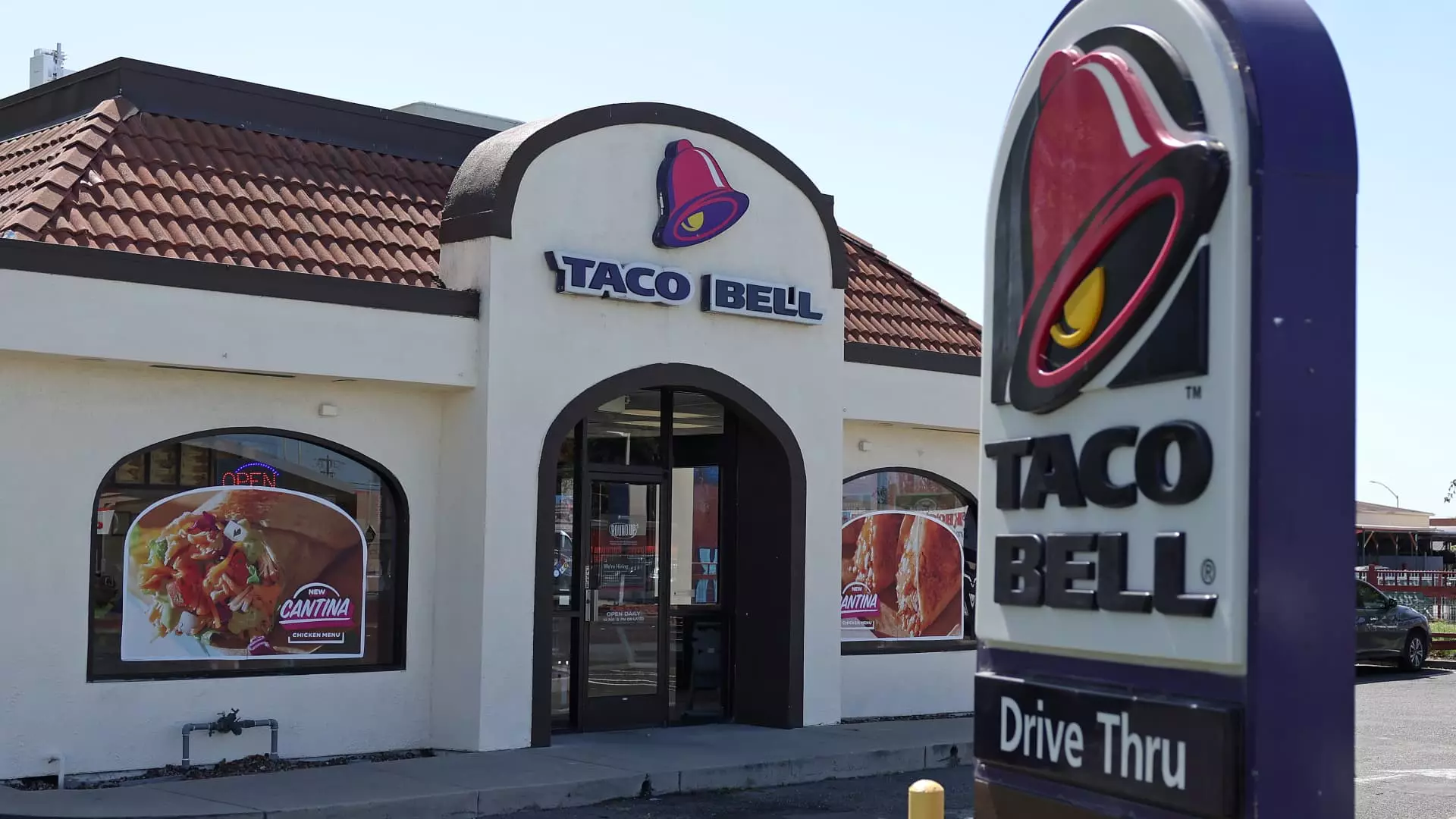The fast-food industry has always been scrutinized for its food safety practices, and a recent E. coli outbreak has only intensified the spotlight on several renowned chains. Yum Brands, which operates popular restaurants like Taco Bell, KFC, and Pizza Hut, has proactively taken action in response to emerging health concerns linked to a national E. coli outbreak attributed to McDonald’s. This incident not only highlights the critical importance of food safety in the fast-food sector but also raises questions surrounding effective supply chain management and communication among suppliers and retailers.
In a statement released to CNBC, a representative of Yum Brands indicated that fresh onions had been removed from certain restaurants within its portfolio as a precautionary step. The phrase “out of an abundance of caution” suggests a commitment to customer safety that can sometimes be overshadowed by profitability concerns. This move signifies Yum’s willingness to take preventive measures even amid unclear connections to the ongoing outbreak. The implication here is that Yum is eager to prioritize the health of its customers, given that the outbreak stems from a supplier distinct from its own operations.
The outbreak’s initial link to McDonald’s, with notable cases tied to the consumption of their Quarter Pounder hamburgers, has raised a myriad of concerns regarding ingredient sourcing and safety protocols. Investigation efforts have concentrated on two primary components: the fresh beef patties and the slivered onions. As health officials delve into the matter, it is noted that the onions used in McDonald’s burgers come from a single facility responsible for washing and slicing. Yum Brands, however, has not confirmed whether the onions removed from their locations came from the same source.
The lack of clear communication from suppliers, specifically Taylor Farms, is problematic. U.S. Foods has issued a recall notification for Taylor Farms onion products but has not linked these directly to Yum. The uncertainty surrounding the origin of the onions being utilized across various fast-food chains prompts a need for greater transparency within the food supply chain. In light of this, consumers may begin to question the robustness of existing food safety protocols, particularly in establishments known for their rapid-service model.
Health authorities are grappling with a rising number of E. coli cases associated with this outbreak—even leading to one reported death and approximately 49 confirmed illnesses across several states. This alarming trend underscores the urgent need for enhanced monitoring of food suppliers and stricter regulatory oversight. The investigative efforts of the Centers for Disease Control and Prevention (CDC) have led to interviews with several individuals affected by the outbreak, revealing a strong correlation with consumption of McDonald’s products.
As the fast-food businesses navigate this crisis, it becomes evident that the playing field for safety and quality assurance must evolve. With ongoing investigations revealing potential failures in supply chain protocols, it is imperative that both suppliers and restaurants address these vulnerabilities to prevent future incidents.
While Yum Brands is taking proactive measures in light of the E. coli outbreak, this situation serves as a critical wake-up call for the entire fast-food industry. Transparency in sourcing, robust safety protocols, and a commitment to accountability should be at the forefront of corporate priorities. In an environment where consumer health is paramount, the willingness of companies to adapt and innovate in food safety practices will ultimately determine their standing in the marketplace. As investigations continue, the industry must learn from this incident to ensure that customer safety is never compromised.

